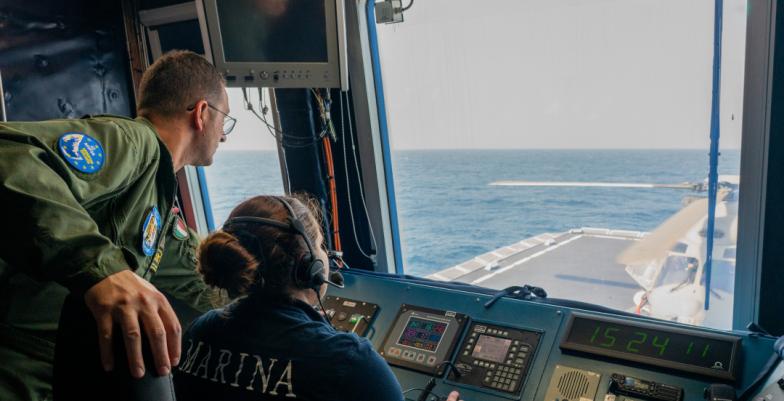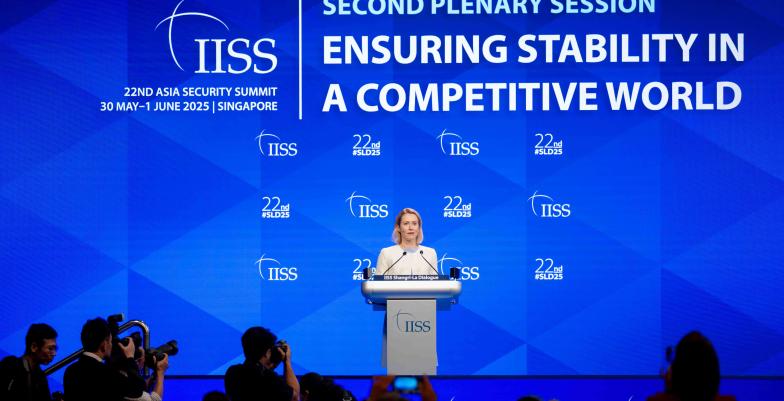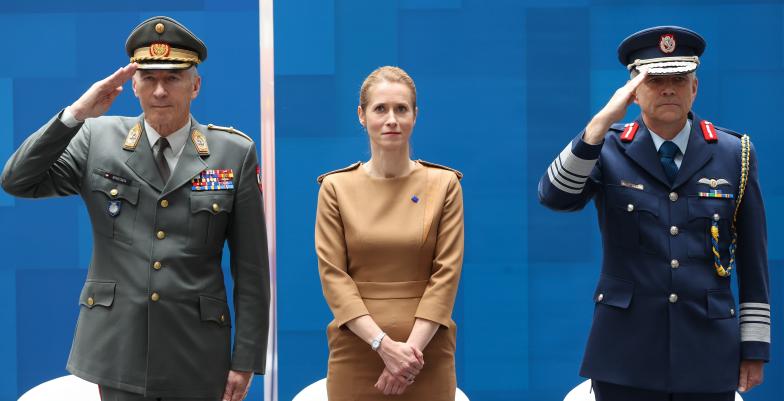The European Union and the Indian Ocean Rim Association (IORA)
The European Union is deepening its engagement with key regional organisations in Asia Pacific to address common challenges and promote shared stability and prosperity.
The EU and IORA: A new deepening partnership
The EU’s application to become a Dialogue Partner of the Indian Ocean Rim Association (IORA) was approved by the IORA Council of Ministers in October 2023. The EU participated for the first time in the IORA Ministerial Meeting in May 2025 under the theme "Sustainable Indian Ocean for Future Generations". The EU's Commissioner for Fisheries and Oceans, Mr. Costas Kadis, addressed the meeting emphasising the EU's commitment to, and interest in the stability, security, and prosperity of the Indian Ocean - home to over 2.7 billion people and representing nearly 20% of global maritime trade.
The EU is committed to cooperation with IORA and the Indo-Pacific region, in support of the international rules-based order, including the UN Convention on the Law of the Sea (UNCLOS), sustainable development, and multilateralism, and to address shared challenges such as maritime security, supply chain disruptions, and geopolitical tensions. This engagement also supports delivering on the priorities of the EU Strategy for Cooperation on the Indo-Pacific - particularly on strengthening international ocean governance -, the Global Gateway Strategy in Asia, and the European Ocean Pact, the EU’s strategy for a coordinated response to all aspects concerning the ocean.
What is IORA?
The Indian Ocean Rim Association (IORA) is an inter-governmental organisation, established in 1997. It unites the Indian Ocean coastal and island states to promote sustainable growth and balanced development of the region and its member states.
IORA brings together 23 countries of the Indian Ocean: Australia, Bangladesh, the Comoros, France, India, Indonesia, Iran, Kenya, Madagascar, Malaysia, Maldives, Mauritius, Mozambique, Oman, Seychelles, Singapore, Somalia, South Africa, Sri Lanka, Tanzania, Thailand, the United Arab Emirates and Yemen. IORA’s secretariat is located in Ebene, Mauritius. In addition to the EU, the current Dialogue Partners of IORA are China, Egypt, Germany, Italy, Japan, Saudi Arabia, the Republic of Korea, Russia, Türkiye, the United Kingdom, and the United States.
The Association addresses six priority areas: Maritime Safety & Security, Trade & investment Facilitation, Fisheries Management, Disaster Risk Management, Tourism & Cultural Exchanges and Academic, Science & Technology Cooperation as well as two cross-cutting issues: Blue Economy (sustainable marine-based economic growth) and Women’s Economic Empowerment.
Joining forces for shared prosperity and security
The EU is committed to an open, safe and sustainably managed Indian Ocean. In this context, the EU has deployed two military operations designed to contribute to the maritime security in the Western Indian Ocean and in the Red Sea through EUNAVFOR (European Union Naval Force) operations, specifically Operation ASPIDES and Operation ATALANTA. These operations aim to enhance maritime security, protect freedom of navigation, and counter threats like piracy and attacks on merchant vessels.
In addition, the EU project Enhancing Security Cooperation in and With Asia (ESIWA+, 2024-2027)aims to deepen security partnerships, dialogues and operational cooperation with countries in the Asia-Pacific region. Itfocuses on areas like cybersecurity, maritime security, counter-terrorism and crisis management, including hybrid threats.
The CRIMARIO project and its IORIS (Indo-Pacific Regional Information Sharing) platform is used by up to 100 agencies from 55 countries, helping to enhance maritime domain awareness in the Indo-Pacific region.
A new EU project was established in 2024 to support Indo-Pacific partners respond to hybrid threats: the EU Pilot Action for Addressing Hybrid Threats in the Indo-Pacific (HIPPA). In line with the EU Indo-Pacific Strategy, HIPPA is a two-year pilot action that aims to assess how hybrid threats to security are perceived in the Indo-Pacific region and the potential to build networks of cooperation between actors in the region and the EU.









